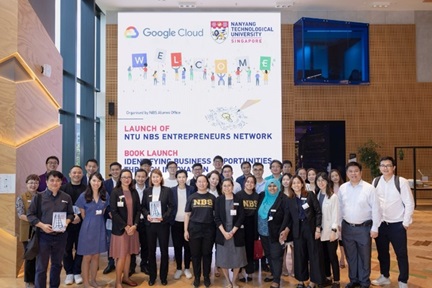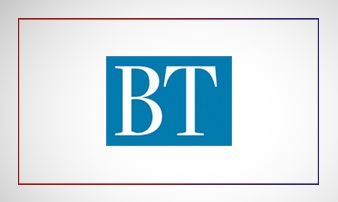Work amid the pandemic: Hybrid may be the way to go in S'pore
Working from home has been the norm for the past year but firms are now figuring out a new game plan in the light of rules allowing 75 per cent of staff to return to the office.
Hybrid arrangements, with workers spending some time at the office and other days at home, seem to be the way to go, companies and experts told The Straits Times.
Singapore Business Federation chief executive Lam Yi Young said most companies are adapting well to hybrid and flexible work arrangements.
But they are also adjusting their practices based on their various needs, he noted.
"Some have shifted to having 75 per cent of employees back in the workplace and some are operating on a 50 per cent split-team basis.
"There are also those who are still working largely from home and those in essential services who are 100 per cent in the workplace."
He added that companies have noted that having staff back at the workplace is important for servicing clients, team interactions and generating ideas, and to support business recovery and growth.
"At the same time, having flexible work arrangements helps to balance between the needs of companies and employees," Mr Lam added.
Hybrid work the new norm
A JobStreet report out on Thursday found only 7 per cent of Asia's workforce now want to commit to a completely on-site work arrangement.
The survey - which polled around 66,600 respondents in Asia in partnership with Seek Asia, Boston Consulting Group and The Network - also noted that most in the region prefer to work two to three days remotely a week, except for those in the Philippines and Hong Kong.
A rolling survey by EngageRocket, an employee experience software provider, found that 74 per cent of professional, managers, executives and technicians in Singapore who participated in the study were on hybrid or remote work arrangements.
Around 193,000 responses have been collected for the survey.
EngageRocket chief executive and co-founder Leong Chee Tung noted that this is consistent with global figures from a commercial real estate survey, where 82 per cent of landlords expect employees in the future to come to the office only three days a week.
He said: "Large employers in Singapore are also moving their workforce towards this holding pattern in the medium term.
"This is enabled by factors such as embedding and embracing digital technologies and workflows, redesigning office space to reduce dedicated personal workstations, embracing collaborative spaces and videoconferencing and widespread education of safe management measures in offices."
Nanyang Technological University's Associate Professor Trevor Yu said most employees in Singapore are spending two to three days in the office while some others work at the office on alternate weeks.
"I believe that (hybrid arrangements) will be the norm of the future," he said.
"Employers have discovered both pros and cons of such arrangements and will continue to adjust and experiment to see what combination works best for their business and workforce.
"Economically and socially, the acceptance of working from home has very much been accelerated by the last year or so."
These changes are more than just the number of days in the office and signify a shift in employer priorities, said Mr Mayank Parekh, chief executive of the Institute for Human Resource Professionals (IHRP).
"Organisations are moving away from the old ways of measuring work done based on time in and time out and towards one that is outcome-centric," he noted.
"This includes moving away from the annual performance review exercise and towards a more regular performance management methodology."
National University of Singapore Business School associate professor Jayanth Narayanan said the pandemic has shifted the conversation on work from home, showing that it can be productive and even a necessity, rather than a perk.
But the shape and form that a hybrid workplace will take is still up in the air, he added.
"Do companies need expensive real estate in the Central Business District for the few meetings a week or can they use co-working spaces and cafes to hold these meetings? This is an open question for which an equilibrium will take some time to emerge."
Prof Yu added that there might be a decrease in the demand for office space. "Now that companies have experienced the benefits of working from home and the ability of technology to facilitate certain job tasks and collaboration, the opportunity to save real estate costs will be seriously considered."
How firms go hybrid
Remaining flexible is key for Changi Airport Group (CAG), whose staff are gradually returning to the office after working from home. Employees will return two days a week this month, with one day fixed at the cluster level and the other left to their choice.
Staff can use an in-house app to book slots to return to the office. The app also provides a view of the scheduled "office days" of their teammates, making it more convenient to coordinate meetings and discussions.
At Changi Airport Group, employees can use an in-house app to book slots to return to the office. ST PHOTO: LIM YAOHUI
Even before the pandemic, CAG had allowed for staggered work hours and the option to work remotely for the day if necessary, said Ms Justina Tan, managing director of the firm's people team.
"When the pandemic hit, we quickly enhanced our staggered work hours so that our staff, in particular those who travel to work via public transport, could avoid the peak-hour crowd," she said.
"Staff had the choice to start work any time between 7.30am and 10.30am, and this remains the arrangement today."
The office has meeting rooms of various sizes and discussion pods to allow staff to take calls or attend virtual discussions.
These spaces double up as quiet rooms for staff who might prefer some quiet time to focus on a piece of work.
"As more of our staff return to the office and in anticipation that hybrid and virtual meetings will continue to be the norm, we have expedited our efforts to equip meeting rooms with videoconferencing capabilities," Ms Tan said.
She added that all meeting rooms, pantries and high-touch surfaces are given a protective long-lasting antimicrobial coating to reduce the risk of virus transmission so staff can return to work with peace of mind.
A cleaner disinfecting the bar table at the pantry of the Changi Airport Group office. ST PHOTO: LIM YAOHUI
Flexible work arrangements are also the modus operandi for professional services firm Ernst & Young, whose 3,500 employees had the option of working from the office, the client's office or from home before Covid-19 struck.
They can also hotdesk in the office or work from meeting rooms, pantries or collaboration spaces, while starting at any time from 7.30am to 9.30am.
Mr Max Loh, the Singapore and Brunei managing partner, said: "In line with our established flexible working environment and arrangements... our office is configured to accommodate no more than 40 per cent of our workforce.
"Accordingly, adhering to the 75 per cent quota is a non-issue."
Meanwhile, a survey of UBS bank staff found that over 80 per cent would also prefer flexibility in working at home or in the office.
About 40 per cent to 50 per cent of its over 3,000 employees returned to the office at the start of the year; the bank can bring back 75 per cent in line with the latest guidelines.
UBS Singapore human resources head Daniel Brandenberger said: "We have empowered all employees with state-of-the-art access technology to facilitate their ability to work remotely where possible."
The new office at 9 Penang Road is also designed to promote collaboration and social interactions for the teams in an agile workspace setting, he added.
Benefits
The hybrid work arrangement allows for a healthier work-life balance, as employees get to choose when to spend time at home and when to be in the office so as not miss out on interaction with colleagues, experts said.
Mr James Lee, Great Eastern's managing director of group human capital, noted: "It may be inevitable that work-life balance could be blurred when employees are working extended hours at home for a prolonged period, which may lead to staff feeling stressed and anxious.
"It is for this reason that we decided to implement our hybrid working arrangement, which would allow employees to integrate their work and life on a more sustainable basis."
The arrangement also allows staff to have face-to-face interactions at work to build rapport among colleagues, he said, noting: "A hybrid work plan can also help to support and promote mental health in the workforce."
CAG's Ms Tan said staggered hours mean staff with school-going children can have breakfast with them before work, or end work early to have dinner with them.
Those who want to schedule fitness activities can also plan their time so they can use the gym or exercise at the new Changi Park connector and Jurassic Mile at the start or end of the work day, she added.
Mr Parekh of IHRP said: "For staff, there is much to gain from a more flexible work arrangement. Many experienced increased productivity without commute or travel time between meetings."
Challenges
On the other hand, the hybrid arrangement can make it difficult for some to have proper work-life separation.
"A disciplined approach to work-life separation is needed for both mental and physical well-being," Mr Parekh said, adding that companies can set guidelines for staff.
These guidelines could include when to communicate about work and even ensuring that there are protocols built into the system so e-mails and messages will not be delivered outside work hours.
Mr Parekh said: "Wellness is something many companies tend to overlook and more could be done at the organisational level to ensure employees knock off."
HSBC Singapore senior human resource consultant Rachael Yan, 39, said she has flexibility in planning her week and balancing personal with professional priorities. She returns to the office twice a week.
"It is good to have a change in work environment from time to time and connect with colleagues in person. Just walking up to them for a quick chat is always helpful," she said. "Relationships are built through physical interactions and engagement is something that is irreplaceable by a Zoom call."
Source: The Straits Times, 1 May 2021




